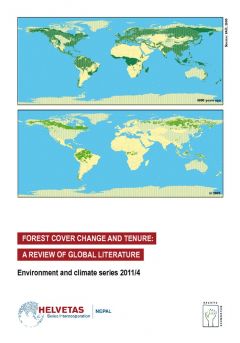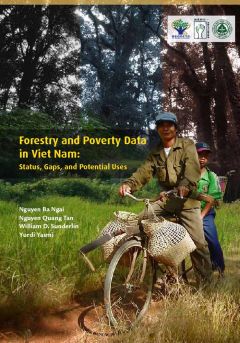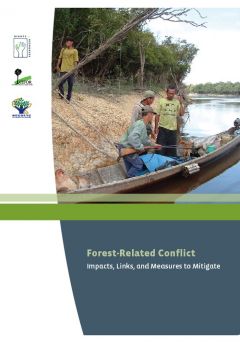Focal point
Location
The Rights and Resources Initiative is a strategic coalition of international, regional and community organizations engaged in development, research and conservation. Together, we are working to encourage greater global commitment and action on pro-poor tenure, policy and market reforms.
The RRI coalition is formed by a group of core Partners who conduct work in specific areas of their regional and thematic expertise. Partners also engage with a wide group of collaborators who participate in and support RRI activities around the world. RRI is a strategic coalition that goes beyond the traditional set of international development actors to involve a wide spectrum of organizations, each of which provides a critical perspective in the larger chain of actors necessary to advance change.
Our Mission
RRI’s Mission is to support local communities’ and indigenous peoples’ struggles against poverty and marginalization by promoting greater global commitment and action towards policy, market and legal reforms that secure their rights to own, control and benefit from natural resources, especially land and forests.
Global Challenge, a Global Opportunity
Forests cover close to 30 percent of the world's land area, and more than a billion people rely on forests to a significant extent for their food, fuel and income.
An estimated 350 million indigenous and tribal peoples are at least partly dependent on forests, including some 60 million who are substantially dependent on forests for their subsistence and livelihoods. Forests are also particularly important to poor women, who shoulder much of the burden for hauling wood and collecting and marketing forest products.
Dominant models of forest industry and conservation have often exacerbated poverty and social conflicts and have precluded pro-poor economic growth. The lack of clear rights to own and use forest land, develop enterprises, and trade in forest products has driven millions of forest dwellers to poverty and encouraged widespread illegal logging and forest loss.
The world will not meet national and global goals to reduce poverty and protect the environment unless poor peoples' rights to land and resources are strengthened. Neither will the world effectively mitigate or adapt to climate change without clarifying local tenure and governance. The next two decades are critical--both for the poor and for the forests.
There are reasons for optimism. Organizations of indigenous peoples and forest-dwelling communities are gaining voice and opportunity, and after decades of limited action many countries are beginning to consider far-reaching legal and policy reforms. There is a major opportunity to advance the rights and livelihoods of forest peoples by establishing the institutional foundations for sustained conservation and forest-based economic development.
Resources
Displaying 81 - 85 of 109Rights to Resources in Crisis: Reviewing the Fate of Customary Tenure in Africa
5 briefs analyse the roots of African land tenure systems, recent policy trends and the phenomenon of large scale land acquisitions. The briefs are: Customary Land Tenure in the Modern World; Putting 20th-Century Land Policies in Perspective; Land Reform in Africa: A Reappraisal; The Status of Customary Land Rights in Africa Today; The Global Land Rush: What this Means for Customary Land Rights.
Forest Cover Change and Tenure: A Review of Global Literature
In the REDD+ era, the issue of forest tenure has shot to the top of international forest policy agendas. Even beyond the issue of 'REDD readiness,' there is much debate on the role of tenure in other outcomes of sustainable forest management, in particular livelihoods and forest conservation. This literature review focuses on the latter concern and aims to provide a brief overview of the international literature on the question of the relationship between forest tenure and forest cover change.
Recognizing Rights to Natural Resources in Mozambique
After a number of constitutional amendments in 1990 had introduced the need to revise the legal framework for land and natural resources1, the government of Mozambique embarked upon a rather piecemeal process to develop a new policy and institutional framework for natural resource management. The main pillars of this framework consist of various pieces of legislation dealing with specific natural resources, such as the Land Law, the Forestry & Wildlife Law, the Mining Law and their related regulations and annexes.
Forest and Poverty Data in Vietnam: Status, Gaps, and Potential Uses
In Vietnam, the lack of quality data in the forestry sector has been an obstacle to institutional reflection and effective policy formulation. This study analyzes the status and gaps of this data, and its implications for addressing poverty in Vietnam.
Forest-Related Conflict: Impact, Links, and Measures to Mitigate
Forest-based conflict is one of the major global challenges for the international forestry agenda together with poverty, climate change, conservation, and biofuels. In this paper, we will estimate the scope of the problem for people and forests, identify the role of forest rights and tenure as part of the cause of and solution to conflict, and project future challenges.








